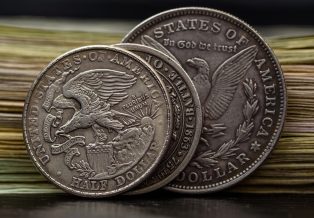
Many investors recognize gold and silver, yet few explore the potential of platinum bullion. This metal often sits in the background, even though it carries a level of rarity that surprises many new buyers. The price history shows long periods where platinum reached higher levels than gold, which makes the current market even more interesting. You might find that this metal offers a path that feels unexplored. Learning more about it can open a fresh view of long-term opportunities.

You might have a drawer or box filled with old forks, spoons, or serving pieces that no one has touched in years, yet something about them makes you pause. Antique silverware often carries far more value than people expect, and the clues are sitting right in front of you. Once you learn what collectors look for, you start to see these pieces in a completely different light. This guide helps you explore that hidden potential with confidence.

Identifying rare coins can feel exciting because you never know what you might uncover in an old collection or a family box. Many beginners want clear guidance on how to study the details that influence value, which is why we created this guide. Let’s learn how to evaluate key features that matter in the world of numismatics.

Have you ever looked at a coin and wondered if it might be worth more than you thought? Many people feel the same way, and that curiosity often leads them to explore a coin appraisal. This process reveals details that are not obvious at first glance, such as condition, rarity, and current market interest. You gain a fresh understanding of what sets one coin apart from another. An appraisal also gives you a clearer direction when you want to make informed choices about your collection.

Many collectors are drawn to vintage watches because each piece carries style and history that modern models rarely match. You might notice how these timepieces show subtle aging that adds character without taking away from their charm. Older designs also highlight craftsmanship that reflects the period when the watch was made. This makes every purchase feel like owning a part of horological history. When you understand these details, you gain a clearer path toward choosing the right watch for your collection.

The value of gold and diamond jewelry is shaped by measurable qualities and changing market dynamics. Gold is evaluated using standardized metrics such as weight and purity, while diamonds rely on individual grading and consumer perception.
Knowing how these assets hold, gain, or lose value helps collectors and investors make informed choices. Both materials appeal to different motivations – gold for its liquidity and reliability, diamonds for their brilliance and exclusivity. However, they behave quite differently in financial and resale markets.
Gold Jewelry: A Standardized and Liquid Asset
Gold jewelry retains its worth because it is linked to a global pricing system. Its value depends on three primary elements: weight, purity, and the international market rate. These factors make gold more transparent and predictable in valuation compared to many other luxury goods.
Purity, measured in karats, indicates how much of a piece consists of real gold. For example, 24K is pure gold, while 18K contains 75 percent gold combined with alloys for added durability. The higher the karat, the greater the intrinsic metal value. Weight also plays a direct role, as every gram adds measurable worth based on the current gold price.
Gold’s liquidity makes it a dependable asset. It can be traded or sold with relative ease because its value follows global benchmarks. While resale may not recover design or labor costs, the core metal holds recognized worth. This stability reinforces the value of gold and diamond jewelry as an enduring form of wealth preservation, particularly when financial markets become uncertain.
Diamond Jewelry: Value Shaped by Subjectivity
Diamonds differ greatly from gold in how they are assessed. Their worth depends on the “4Cs” – cut, color, clarity, and carat weight. Each stone’s uniqueness introduces subjectivity into pricing. This means that two diamonds of similar size can vary widely in value due to brightness, inclusions, or tone.
Design and craftsmanship influence worth as well. A diamond set in an intricate or luxury design may command a higher price at retail, yet resale tends to be less straightforward. The absence of a universal pricing structure makes the secondary diamond market unpredictable, with resale often between 20 and 50 percent of the original purchase price.
Diamonds function best as luxury items, where their value in gold and diamond comparison leans more toward beauty and emotion than consistent financial return.
Gold vs. Diamonds: Comparing Investment and Resale Value
Gold exists within a standardized and transparent market, its pricing driven by global supply and demand trends. This creates consistent resale potential and a conservative investment profile.
Diamonds belong to a more fragmented marketplace where valuation depends heavily on perception and taste. For this reason, resale becomes less liquid and dependent on finding the right buyer.
From an investment perspective, gold jewelry offers measurable security. Diamonds offer individuality and beauty but carry more volatility. Understanding these dynamics helps balance sentiment and strategy when purchasing fine jewelry.
Turn Knowledge into Smart Value Decisions with Coin Exchange NY
Here at Coin Exchange NY, we specialize in evaluating both gold and diamond jewelry with transparency and care. Our team helps clients understand real market value, not inflated retail estimates.
By combining expertise in precious metals and gemstones, we help you make confident decisions about buying, selling, or appraising your collection.


